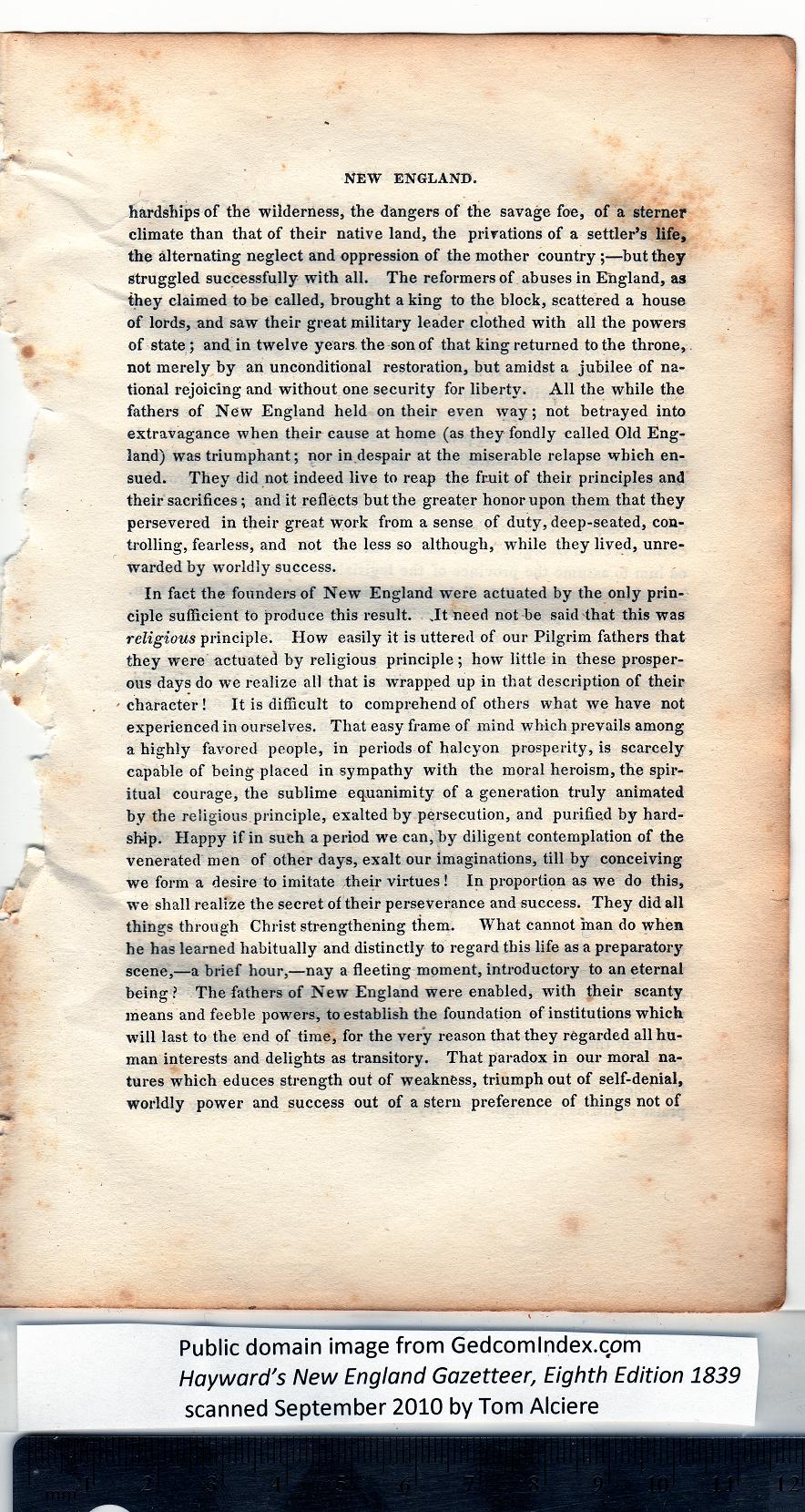|
NEW ENGLAND.
hardships of the wilderness, the dangers of the savage foe, of a sterner
climate than that of their native land, the privations of a settler’s life,
the alternating neglect and oppression of the mother country ;—but they
struggled successfully with all. The reformers of abuses in England, as
they claimed to be called, brought a king to the block, scattered a house
of lords, and saw their great military leader clothed with all the powers
of state; and in twelve years the son of that king returned to the throne,
not merely by an unconditional restoration, but amidst a jubilee of na¬
tional rejoicing and without one security for liberty. All the while the
fathers of New England held on their even way; not betrayed into
extravagance when their cause at home (as they fondly called Old Eng¬
land) was triumphant; nor in despair at the miserable relapse which en¬
sued. They did not indeed live to reap the fruit of their principles and
their sacrifices; and it reflects but the greater honor upon them that they
persevered in their great work from a sense of duty, deep-seated, con¬
trolling, fearless, and not the less so although, while they lived, unre¬
warded by worldly success.
In fact the founders of New England were actuated by the only prin¬
ciple sufficient to produce this result. Jt need not be said that this was
religious principle. How easily it is uttered of our Pilgrim fathers that
they were actuated by religious principle; how little in these prosper¬
ous days do we realize all that is wrapped up in that description of their
character! It is difficult to comprehend of others what we have not
experienced in ourselves. That easy frame of mind which prevails among
a highly favored people, in periods of halcyon prosperity, is scarcely
capable of being placed in sympathy with the moral heroism, the spir¬
itual courage, the sublime equanimity of a generation truly animated
by the religious principle, exalted by persecution, and purified by hard¬
ship. Happy if in such a period we can, by diligent contemplation of the
venerated men of other days, exalt our imaginations, till by conceiving
we form a desire to imitate their virtues! In proportion as we do this,
we shall realize the secret of their perseverance and success. They did all
things through Christ strengthening them. What cannot 'man do when
he has learned habitually and distinctly to regard this life as a preparatory
scene,—a brief hour,—nay a fleeting moment, introductory to an eternal
being? The fathers of New England were enabled, with their scanty
means and feeble powers, to establish the foundation of institutions which
will last to the end of time, for the very reason that they regarded all hu¬
man interests and delights as transitory. That paradox in our moral na¬
tures which educes strength out of weakness, triumph out of self-denial,
worldly power and success out of a stern preference of things not of
PREVIOUS PAGE ... NEXT PAGE
This page was written in HTML using a program written in Python 3.2 and image-to-HTML text generated by ABBYY FineReader 11, Professional Edition.
|
